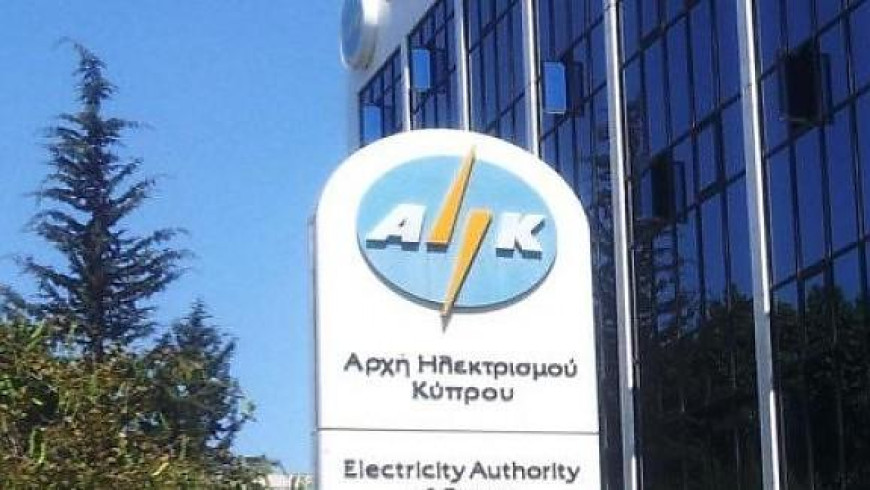Poor and Inequitable Performance of Cyprus Banks since 2015

The activities and performance of Cyprus banks during the Anastasiades administration shows that they have done little in contributing to the economic and social welfare of most citizens. Bankers have failed to relieve a great many businesses and households of their heavy debt burdens and have fallen short in financing productive investment projects to help generate sustained development. And in their lending practices and treatment of non-performing loans banks have favored the political and business “elite” over small businesses and ordinary citizens militating against equitable growth in the process.
In retrospect the Cyprus banking authorities wasted the crisis of 2013 and the resultant financial assistance from the troika of international institutions in not taking the opportunity to implement many of the policy measures and reforms agreed with the troika. Instead, banks activities have been preoccupied in selling impaired loans and their property collateral to predatory investment and equity funds that have widened inequalities and kept the private sector heavily indebted.
Background
The main factor responsible for the 2012/13 financial crisis was the reckless lending of the banks that resulted in these banks running out of liquidity and not being able to meet their liabilities. The adjustment program agreed by the Anastasiades government with the troika (the MOU) called for restoring financial stability through, among other things, “policy actions to place the banking system on a sustainable footing so as to enhance financial intermediation and support economic activity”.
Cyprus exited the economic adjustment program with the troika early in March 2016 with the IMF noting the impressive progress achieved by banks in restoring capital and liquidity to adequate levels. However, by March 2016 bank balance sheets were still burdened with a huge amount of NPLs, estimated at around 28 billion euro or 45 per cent of total loans, that in fact exceeded their level at the time of the deposit haircut in March 2013 by around 8 billion euro. And the IMF staff somewhat naively reported in March 2016 that “new foreclosure and insolvency rules as encouraging banks and borrowers to come together to find workable solutions for unpaid loans”.
Performance of Banks
But after 2015 the performance of Cyprus banks has been disappointing in that there has been a large shortfall in intermediating their accumulating deposits into loans to support the expansion of economic activity. While bank deposits increased by 6.1 billion euro between December2015 and December 2022 bank loans and advances outstanding have declined precipitously by 36.5 billion or 58.4 per cent over the same period. In fact, the failure to extend a decent amount of new loans resulted in Cyprus banks piling-up huge amounts of cash, that by September 2022 exceeded loans and advances outstanding and was equal to 39.2 per cent of their total assets. This latter cash ratio was much higher than the average for systemically important banks in 17 other EU countries of 15.7 per cent at end-September 2022.
Owing to the deficiency in extending interest-bearing loans and the amassing of cash, which until recently was deposited at the ECB “earning” negative interest, Cyprus banks have over the last decade recorded losses or extremely low profits. The latest ECB banking statistics show that systemically important Cyprus banks registered a return on equity of a very modest 0.32% in the third quarter of 2022, which was much lower than the corresponding returns in the counterpart banks in 17 other EU countries apart from Malta.
Unfortunately, the ECB and the Cyprus authorities have myopically judged the performance of banks by their ability to remove NPLs off their balance sheets. But such a process, particularly by selling NPLs to third parties, just keeps private sector households and businesses heavily indebted. Indeed, private debt which had peaked at 62.3 billion euro at end-2015 fell by only 4.3 per cent in following six and three-quarter years to reach 59.7 billion euro at end-September 2022. Indeed, Cyprus banks seem to be digging their own grave for supporting economic activity by keeping potential customers uncreditworthy rather than productively restructuring the unpaid loans of many borrowers. Instead, Cyprus banks through calling in the impaired loans of individuals and small businesses and selling the related property collateral at large discounts to third parties (mainly predatory equity and investment funds) have preferred to engage in wealth transfers as against real wealth creation by financing productive investment projects.
These wealth transfers resulting from the selling of NPLs by banks as well as the favors granted to wealthy property owners in extending credits as against a reluctance to lend to the less wealthy, lower income earners, has widened inequalities, especially between the older generation of property owners and the younger generation of rentiers. And given their difficulties in getting on the property ladder in the face of cost-of-living pressures younger couples are delaying and even not producing offspring with adverse demographic implications for the economy and society. Furthermore, with banks keeping deposit rates at virtually zero and bank charges and loan interest rates rising there appears to be less incentive for young persons to save in order to be able to eventually purchase a house.
Weak Supervision of Banks
Weak supervision of banks by the European Supervisory Mechanism of which the Central Bank of Cyprus is a constituent part has facilitated illegal transactions such as money laundering through Cyprus banks. The laundering of money via Cyprus banks enabled all sorts of shady characters to purchase Cyprus/EU passports under the “golden passport” scheme.
In view of the failure to properly supervise lending to property developers prior to the 2012/13 financial crisis there is concern that the ongoing debt-fueled excessive construction of luxury apartments and commercial offices in Cyprus cities could again lead to financial instability because of inadequate supervision. In this connection it is unclear whether there is close monitoring of the debt exposure of large property developers and their capability to repay loans.
There are concerns also that the very close relationship between the two leading Cyprus banks and Credit Acquiring companies that are licensed by the Central Bank of Cyprus is resulting in the inequitable transfer of wealth via bank sales of large packages of NPLs and their related property collateral at large discounts to these companies. And there are financial stability concerns with these two banks financing to a large extent the purchases of NPLs by lightly capitalized Credit Acquiring companies . And with such lending transactions banks are indirectly still exposed to the credit risk of non-repayment of a very large amount of loans by debtors, a situation somewhat similar to that before the sub-prime mortgage crisis in the United States.
Recommendations
Given the very large amount of idle cash in banks and their inability to identify and finance economically viable projects there is a need, firstly, to enhance the ability of bank staff to process loan applications by a proper appraisal of the borrowers’ capability to repay the loan from income rather than through realization of the security/collateral attached to the loan.
Secondly, there is a need to establish an institution that can more productively utilize bank depositors’ and taxpayers’ money. Accordingly, the setting up of an independent Development Finance Agency is recommended that would employ competent and moral professional staff and be tasked with identifying and arranging the financing of large-scale economically viable projects, including those involving Public Private Partnerships. International institutions such as the European Investment Bank should be approached so as to provide capital and technical assistance in establishing a new Finance Agency.
Greatly improving the supervision of banks and non-bank financial institutions is required. Among other things there needs to be more thorough scrutiny of bank transactions by the Central Bank of Cyprus so as to detect and help prevent money laundering.
The financial relations between banks and Credit Acquiring companies need to be closely monitored as well. These companies should be required to produce audited financial statements on a bi-annual basis giving details of their capital positions and major stakeholders or owners.
More generally, banks should pursue the need to make profits by primarily expanding steadily their portfolio of interest-bearing loans. However, banks should be more equitable toward ordinary citizens and small businesses by not discriminating in favor of large borrowers in their interest and other charges and return as well to giving positive interest rates on saving and time deposits.







 3287.99
3287.99 1275.09
1275.09

